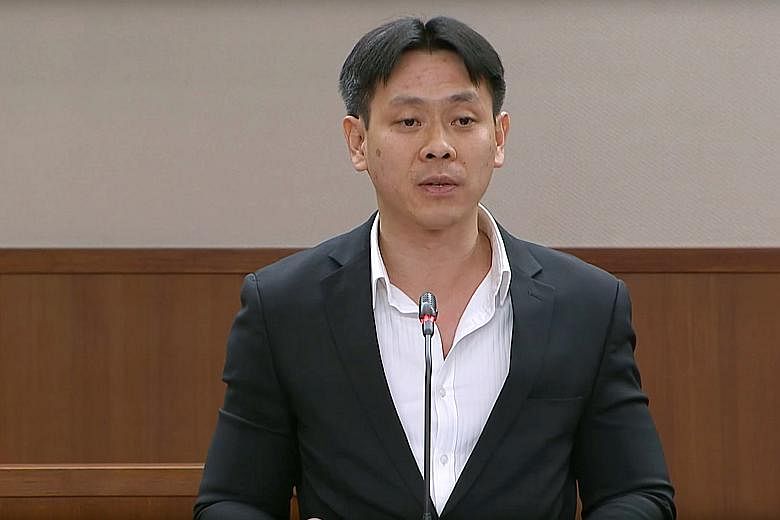SINGAPORE - Are public servants not speaking up out of fear or disillusionment?
Two ministers said in Parliament on Thursday (March 1) that this was not the case, noting that there are systems in place for public servants to speak up about wrongdoing or suggest improvements.
Mr Louis Ng (Nee Soon GRC) had said during the Budget debate on Tuesday that public officers dare not speak up for fear of getting into trouble, and feel efforts to improve processes would be in vain.
On Thursday, during the debate on the budget of the Prime Minister's Office, both Deputy Prime Minister Teo Chee Hean and Education Minister (Higher Education and Skills) Ong Ye Kung addressed Mr Ng's comments.
Mr Ong, who leads public service innovation efforts, noted that a Public Sector Transformation Award was introduced to recognise public servants for "constructive discontent".
There is also a mechanism recently added to the bonus system for agencies to specifically recognise officers for innovation and enterprise, he said, adding that all agencies conduct regular employee engagement surveys.
Mr Ong said public officers at all levels must recognise that change starts with themselves.
As a minister, he said he would ask himself whether he is giving policy directions that are bold, clear and empowering enough for staff.
Permanent secretaries or chief executives would ask if they have built an effective organisation with the right forward-looking culture that can embrace change, while directors would ask if they have made improvements in their areas of responsibility to make the public service more effective, while empowering and motivating the people reporting to them.
Individual officers should ask whether they have acquired the skills to do their jobs better and serve the public better.
Objecting to Mr Ng's comments, Mr Ong said where the public service has fallen short, it will address the problem. "But when generalisations that tar the entire service with the same brush are made in public, and worse, further spread through media, it does not do justice to our officers, it discourages and undermines improvement efforts."
He suggested that Mr Ng, as an MP and public figure, do his part by assuring civil servants that from his own experience he has never gotten into trouble for speaking up.
If they feel the system does not allow them to make a difference, Mr Ng can ask them what is it they want to change. "If it is a philosophical shift in government policy like selling land to pay for healthcare costs, then you have to explain to them this is not the policy of this current government," said Mr Ong, making reference to the suggestion made by the Workers' Party.
"If it is something that makes things better but their immediate supervisor is not supportive, then inform their permanent secretary, or the head of the Civil Service, or even have a word with me and I will see to it," he said.
DPM Teo, who is Minister-in-charge of the Civil Service, in turn noted that the internal disclosure framework for public servants to report wrongdoings is working well and being used by officers.
About 320 cases were reported through the framework last year, a figure which has remained stable over the past three years, he said.
Of these, about nine in 10 cases were formally investigated and 134 resulted in some form of disciplinary action, he said, adding that many of the cases did not involve the misuse of public funds and "did not reflect serious gaps in the public service's systems of checks and controls".
Public officers can also report perceived wrongdoing to the Public Service Commission, the head of the Civil Service, or enforcement agencies such as the police and the Corrupt Practices Investigation Bureau.
DPM Teo was answering a question from Non-Constituency MP Leon Perera on whether public servants are aware of the whistle-blowing channels available, especially after the Public Sector (Governance) Act was passed in January. Under the law, political office-holders cannot instruct civil servants to act with respect to a particular person or people.


